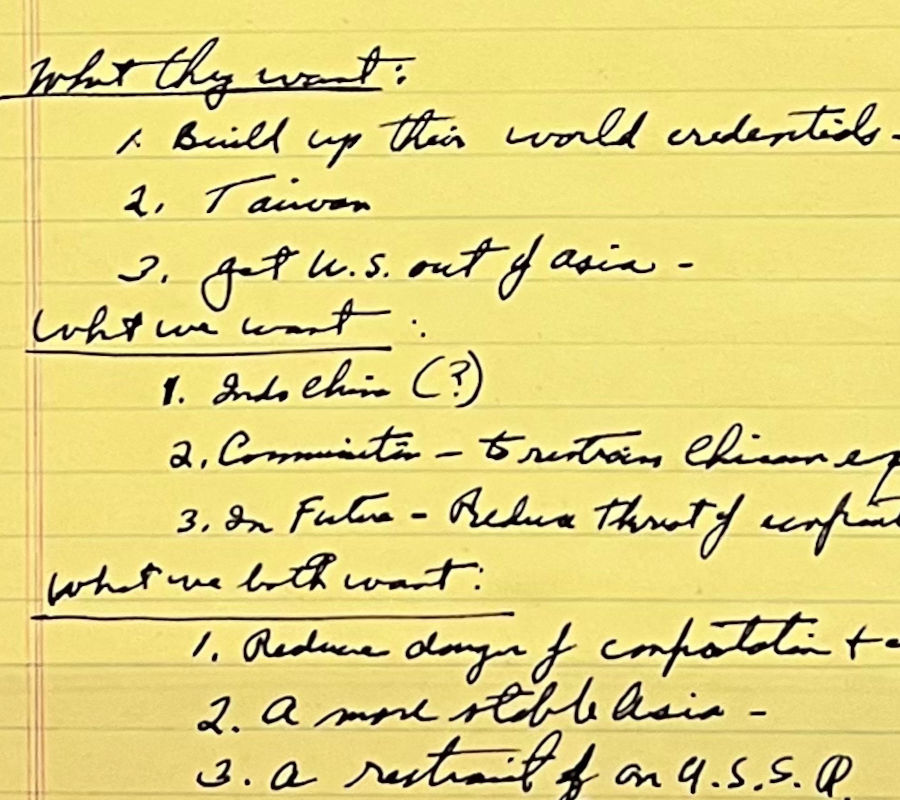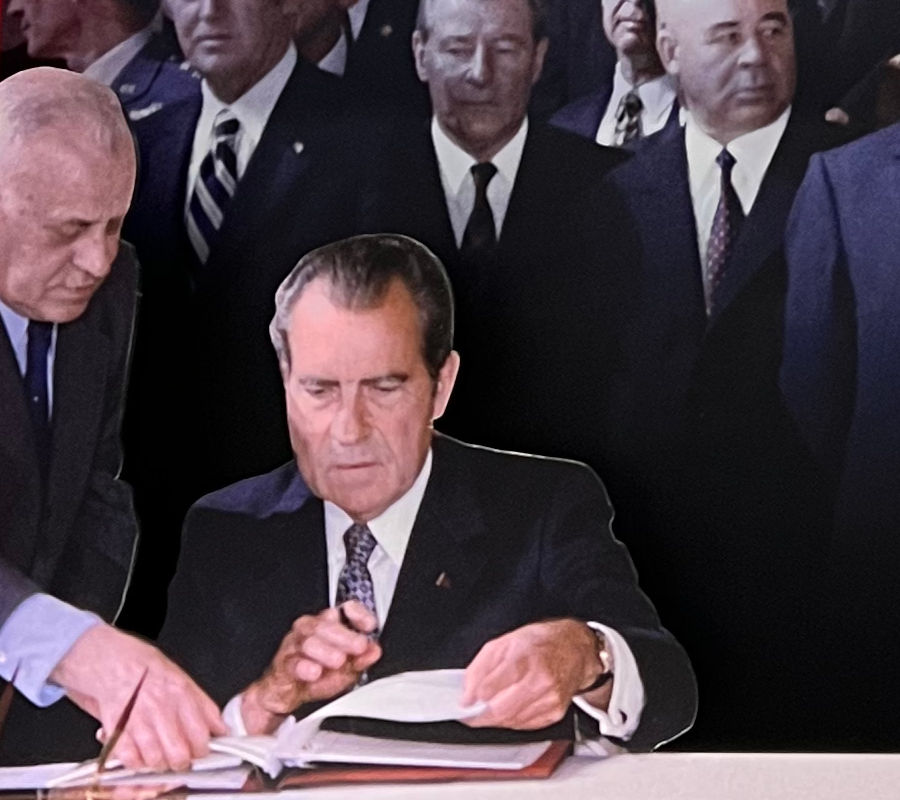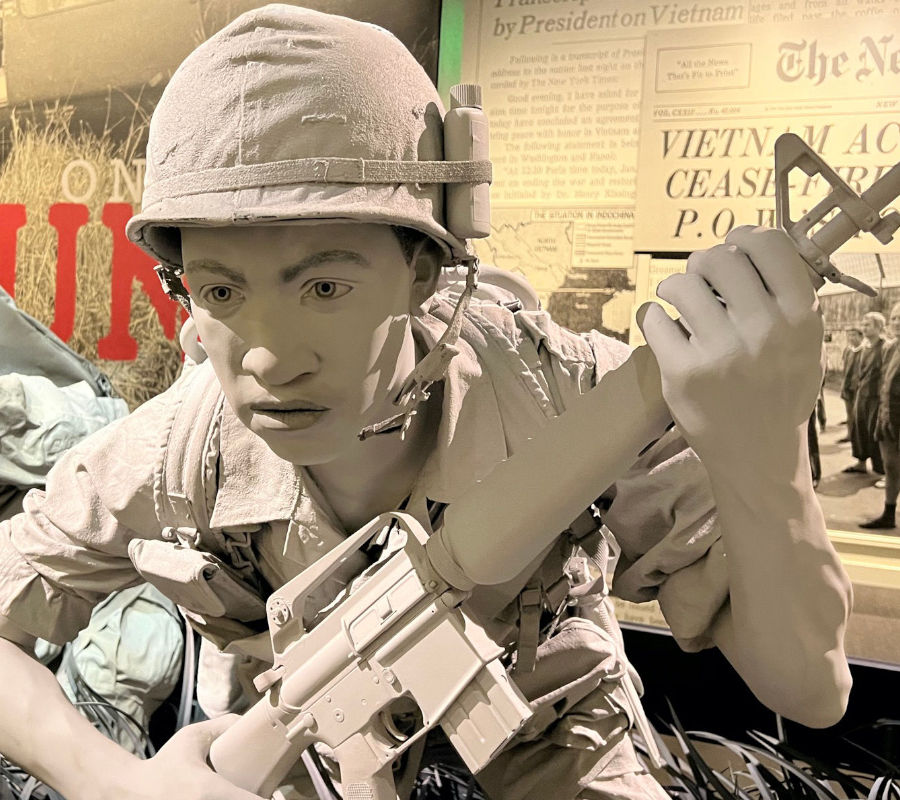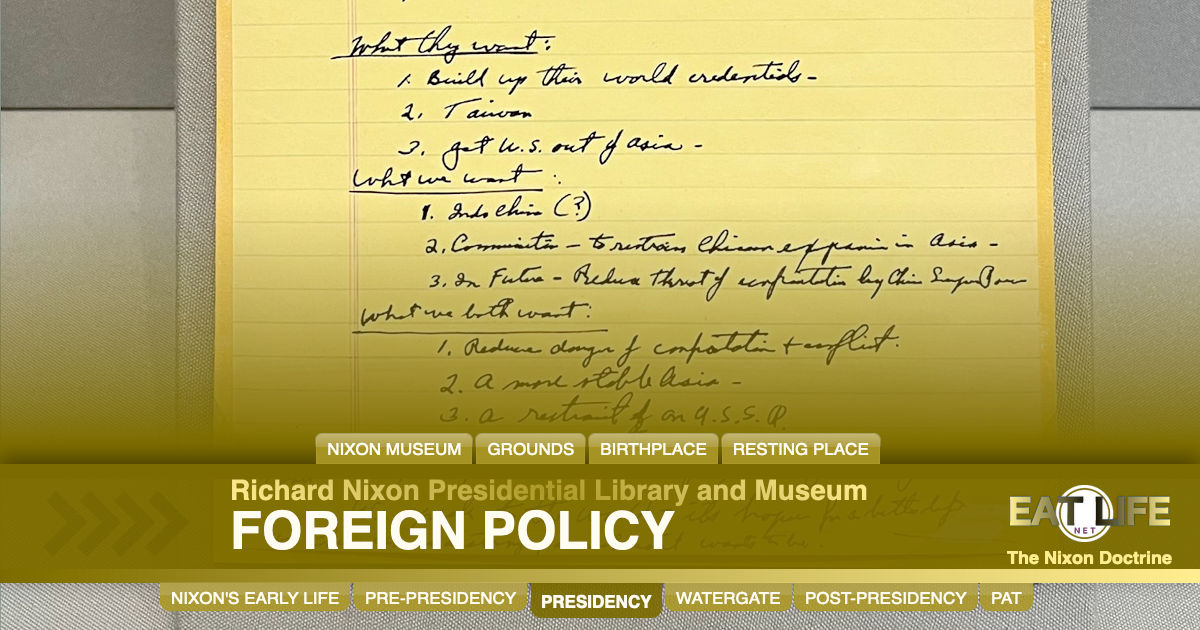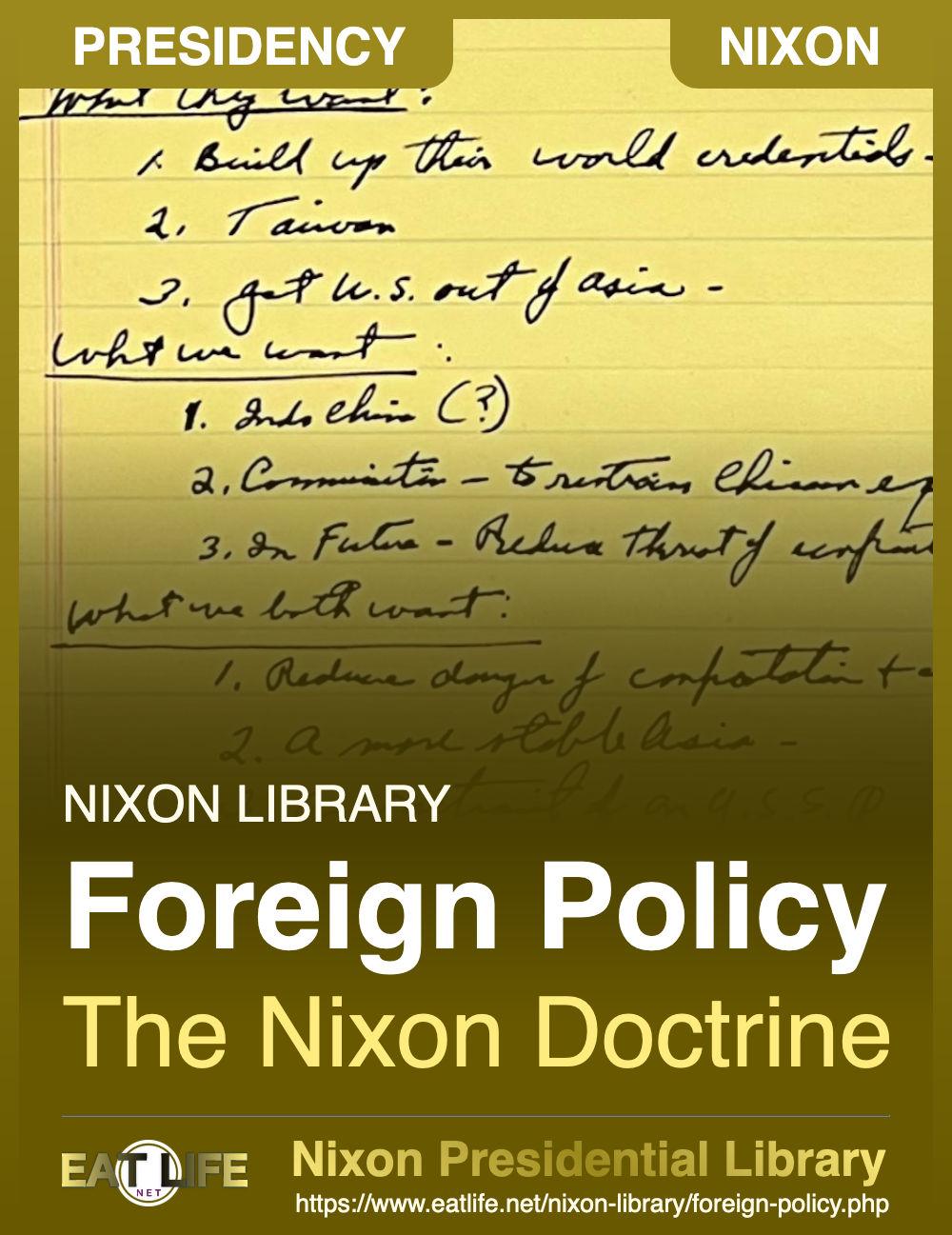When Richard Nixon became President, it was clear that the world, and America's place in it, had changed radically during the Vietnam years.
The United States could not afford to send troops to defend every country from communism or nuclear threat. Not only would that be prohibitively expensive and put thousands of American soldiers at risk, but America itself would be deeply divided on the merits of such interventions.
To end a war fought on many fronts," Nixon said in his 1969 speech outlining the Nixon doctrine, "I initiated a pursuit for peace on many fronts." The United States would honor all existing treaties and "provide a shield if nuclear power threatens the freedom" of an ally.
America would provide military assistance but would "look to the nation directly threatened to assume the primary responsibility of providing the manpower for its defense." In practice this meant that
- Many U.S. troops were withdrawn from South Korea.
- The United States supported Israel with hardware and supplies in the 1973 Yom Kippur War but did not send troops.
- America now bolstered governments in the Middle East and Latin America without becoming directly involved.
In the broadest sense, the Nixon Doctrine promised to keep the United States out of costly foreign conflicts.
Let us build a structure of peace in the world in which the weak are as safe as the strong, in which each respects the right of the other to live by a different system, in which those who would influence others will do so by the strength of their ideas and not by the force of their arms.
- January 20, 1973, Second Inaugural Address
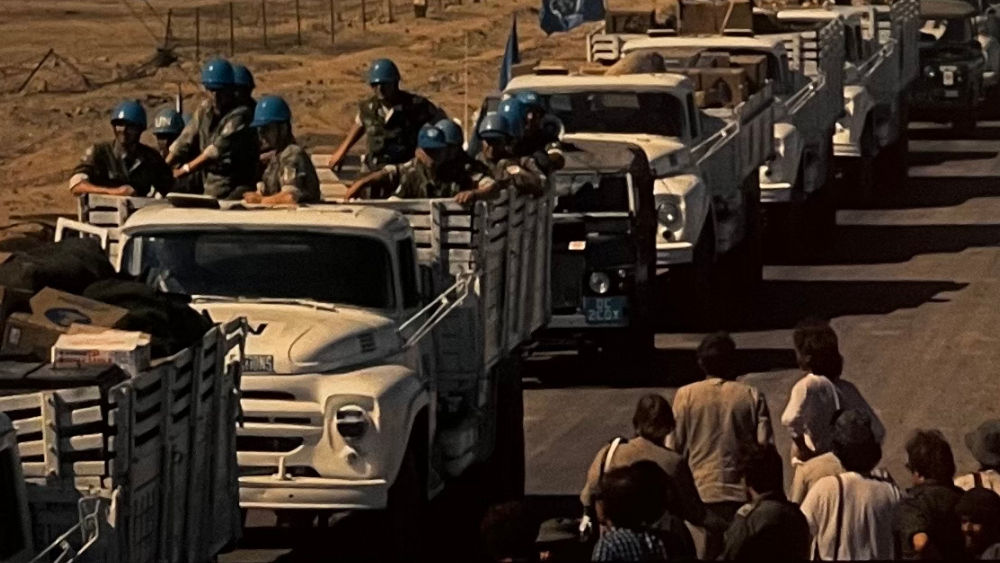
- U.S. Support of Israel by providing military supplies offers a dramatic and successful employment of the Nixon Doctrine.
The peace we seek in the world is not the flimsy peace which is merely an interlude between wars, but a peace which can endure for generations to come. It is important that we understand both the necessity and the limitations of America's role in maintaining that peace.
- January 20, 1973, Second Inaugural Address
During his years in Congress and as Vice President, he traveled widely and had a lively interest in foreign policy. During his years out of office he continued his travels and met with leaders of both hemispheres.
As President he was determined to apply his unique foreign policy skills to the conduct of his administration. He decided to concentrate the coordination of foreign policy in the National Security Council at the White House, rather than allowing it to flow from the State Department.
Together, he and his National Security Advisor, Henry Kissinger, often worked directly with other heads of state. On their own, Nixon and Kissinger could broker agreements swiftly and secretly. While the State Department was included in the NSC process, critics argue that this method meant Nixon and Kissinger functioned without the years of relationships developed by career State Department staff.
Kissinger shared the President's strategic worldview and his policy of realism, but their relationship was complicated, a tangle of ego, ambition, brilliance, and singular purpose.
Kissinger's lower public profile enabled him to travel around the world to conduct negotiations that wouldn't have been possible for the President. This ability was essential in
- Laying the groundwork for the Vietnam peace talks in Paris
- Trips to China to prepare for the President's historic visit
- Early negotiations for the SALT arms limitation talks
The Nixon-Kissinger team has become legendary in the annals of diplomacy.
As a Congressman, Senator, and Vice President, Nixon had been on the offensive against communism at home and overseas. Yet when he became President, he opened relations with Communist China and negotiated the first treaty in history limiting the number and development of nuclear weapons with the Soviet Union.
By the time President Nixon left office in 1974, the Vietnam War was ended. He had brokered peace between Israel and an Arab coalition and re-established relations with Egypt and opened relations with Syria. During his six years in the White House, in many practical ways, Nixon made great strides toward his goal of helping to establish "a generation of peace."
The greatest honor history can bestow is the title of peacemaker.
- January 20, 1969

During his preparation for his historic trip to the People's Republic of China, President Nixon made notes about "what they want," "what we want," and "what we both want."
